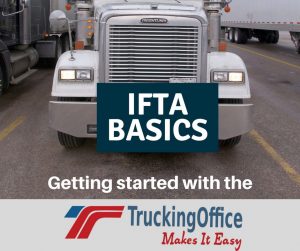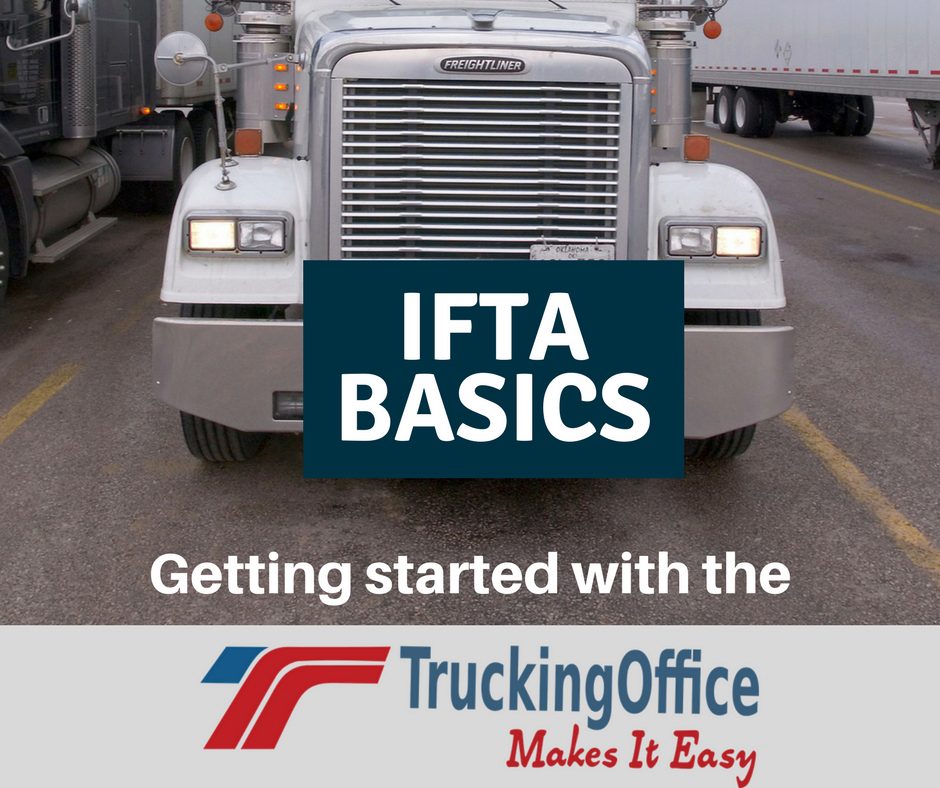If you’re a new owner-operator, you may not have filed the IFTA until now. This isn’t a complete guide, but it can help you get started – and give you a tool to eliminate 99% of the headache that comes along with it.
eliminate 99% of the headache that comes along with it.
Because staying on top of IFTA matters is one of the most important duties of a transportation professional, you need to know the hard truth. The IFTA is better than what we used to have, but that doesn’t make it easy. What you need is something to make the task fast and easy, giving you more time to do the one thing that actually puts money in your pocket: driving.
The IFTA Basics
IFTA stands for International Fuel Tax Agreement. It refers to a plan set up between 48 US states and 10 Canadian provinces. (However, it doesn’t apply to Alaska, Hawaii, or the three northernmost provinces.) It serves the following purposes:
- Simplifying the payment of taxes across state and national borders.
- Ensuring that each state or jurisdiction receives its share of tax revenue.
- Reducing the number of decals, forms, etc., that truckers must keep track of.
The IFTA is designed to make tax matters simpler for everyone involved. Filing IFTA reports on a timely basis and making sure your fuel taxes are paid is your responsibility as a transportation professional.
Who the IFTA Applies to
The IFTA applies to you if you meet the following criteria:
- Your truck has a gross vehicle weight (GVW) of 26,000 pounds or has three or more axles or both. For example, if your truck has a GVW of 25,000 pounds but has three axles, then you fall within IFTA jurisdiction. Or say your truck has only two axles but has a GVW of 27,000 pounds – in that case, you are also under the IFTA. This includes so-called “piggyback” combos that have a GVW of at least 26,000 pounds.
- You use the truck across state lines for commercial purposes; i.e. transporting goods.
Personal or recreational vehicles (RV) are not covered by the IFTA.
What the IFTA Requires You to Do
Complying with IFTA basics requires you to do a few important things:
- Display a current IFTA decal on your truck at all times. Each year’s decal expires on January 1st of the following year. The 2017 decal will expire on the first day of 2018. The DMV allows a grace period until the end of February to renew the decal. So a driver whose 2017 decal expired would have through February 28, 2018, to get a new one. After this date, drivers who do not comply will be subject to fines.
- Complete and submit an IFTA report every 90 days. The deadlines for these IFTA reports are April 30th, July 31st, October 31st, and January 31st.
- Pay all the IFTA taxes due by the deadlines.
- Maintain all fuel tax records for a period of at least four years.
- Have records on hand in your office at all times.
- Allow a DOT auditor access to these records upon request. The auditor may examine your forms and receipts to ensure that you are complying with the law.
The Key to Complying with the IFTA
Above all else, the following things are vital to understanding IFTA:
- Be organized.
- Get organized.
- Stay organized.
That point is so important that it’s worth repeating. Keeping all your records in order and easily accessible is essential for staying on top of fuel tax matters. If you don’t, then the consequences can include heavy fines and other problems. You could be forced off the road until the new decal arrives – losing money with every minute while you wait for the mail.
If you’ve got a truck loan payment to make, you can’t afford time off the road.
IFTA Basics and Software
As a new trucker, you’ve got a variety of software choices that can help you do your IFTA. We strongly recommend that you use software. The hours that you’ll be off the road managing all the arithmetic and forms – not to mention how complicated it gets because every jurisdiction has its unique forms and tax rates – can add to your frustration. When truckers talk about the headaches they get from the IFTA, they’re not lying. This is one task that we should use software to manage!
But if you’re looking for a stand alone product, you’re not making it easier on yourself. Every time you enter information into a computer, you increase the likelihood of an error. This is one place you can’t afford an error, either underpaying the taxman or overpaying and hurting yourself.
It’s a lot smarter to use a software package that manages everything from dispatches to invoices to IFTA forms.
TruckingOffice does it all.
With the right software, you can avoid the IFTA headaches.
TruckingOffice makes keeping track of these regulations simple. Our software’s cutting-edge features do all the busy work for you, making sure that you pay exactly what you owe and not a penny more. And you’ll be surprised at how easy it is to use. Find out for yourself by taking TruckingOffice for a free 30 day test drive starting today. You won’t even need a credit card or checking account to get started.







Recent Comments